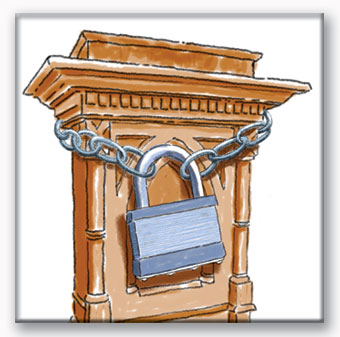Pumping up priesthood at the expense of lay ministry is no way to renew the church.
The full, conscious, and active participation of laypeople in the liturgy took another hit in May, when Archbishop Harry Flynn of St. Paul and Minneapolis ordered pastors in his diocese to end lay preaching at Mass, effective with his retirement on May 2 and the succession of Archbishop John Nienstedt. Nearly 30 parishes in the archdiocese had at least some lay preaching at Mass. The practice had been going on for 25 years, according to Catholic News Service.
Flynn’s reasons varied widely, though none of them was good. The archbishop said he might feel “deprived” if a layperson preached because it is his vocation to preach the gospel and it would be “disruptive . . . to have someone else come and break open the Word of God.” Flynn also argued that scripture makes clear that it was the role of the presbyters to preach, though none of the Twelve, nor the apostle Paul, nor most of the ancient missionaries were presbyters, and they all did a lot of preaching.
But most breathtaking was the comment of the new archbishop, who said that the issue of preaching was “not a question of a person’s God-given talent . . . There is the power of the Holy Spirit that goes with [a priest or deacon] that doesn’t go to just anyone who has been baptized.” Ordination, according to Nien-stedt, and the extra dollop of the Holy Spirit that goes with it, is the sole criterion for the liturgical ministry of preacher, regardless of whether one actually has the gifts for it. The meager helping of the Spirit given to “just anyone” who is baptized isn’t sufficient.
Some may simply chalk this up to yet another instance of creeping clericalism in the liturgy, but the accompanying super-sized understanding of Holy Orders is a theological bridge too far. In effect, it inflates Holy Orders at the expense of the original sacraments of ministry, those of initiation: Baptism, Confirmation, and Eucharist. And what it leads to is an almost magical attitude about ordination, as if it confers heretofore unavailable abilities in the new deacon, priest, or bishop. But experience has certainly shown that a bad preacher before ordination is still going to be a bad one afterward.
There is an ancient and better tradition of official ministry that can be found right in the name of the sacrament of ordination: orders. In ancient Christianity those who were accepted by God’s people into the three “orders” of official ministry—diaconate, presbyterate, and episcopate—were empowered (“ordered”) by the whole church to serve, teach, and lead the Body in prayer as its official ministers. But that threefold charge—reflecting Christ’s roles as king, prophet, and priest—came in the first place from initiation, as even today the rite of Baptism and canon law clearly indicate.
And there’s the rub: Ancient Christians instituted orders of ministry to recognize officially those with the particular gifts for serving the church. Gifts came first; ordination was simply the official recognition. Today, of course, it’s the other way around: What matters is not particular gifts or a community’s recognition but, quite frankly, male gender and sufficient intelligence to make it through the seminary.
This whole situation, of course, is merely another moment in the crisis of ministry now facing Catholicism. Flynn and Nienstedt see the flood of competent, professional laypeople entering ministry at six times the trickle of candidates for ordination, according to statistics from the Center for Applied Research in the Apostolate. If the ordained don’t get some jobs restricted to them, the logic goes, no one will want to join up. But drawing boundaries around preaching or other ministries for bogus theological reasons is just so many fingers in a collapsing dike.
We have barely begun to recover the sacraments of initiation as the foundational sacraments of ministry, while our official theology of ordination remains stuck in the Middle Ages. But it is the former that will lead the way forward, and our understanding of Orders needs some major renovation.
That troublesome, gift-giving Holy Spirit is doing something in the church, rooted in the “fundamental equality of the People of God” announced by the Second Vatican Council. The church is, for all practical purposes, being declericalized from the ground up, and laypeople are stepping into the vacuum, ready to offer all their gifts. It’s time for the hierarchy to get wholeheartedly on board.














Add comment